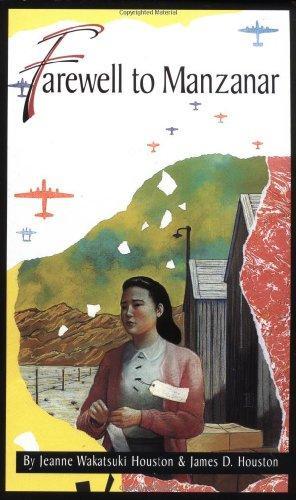Farewell to Manzanar Book Summary
A True Story of Japanese American Experience During and After the World War II Internment
TL;DR
Farewell to Manzanar is a poignant memoir recounting Jeanne Wakatsuki's childhood experiences in a Japanese American internment camp during WWII, exploring themes of identity, resilience, and the impact of prejudice.
What is Farewell to Manzanar about
Farewell to Manzanar tells the moving true story of Jeanne Wakatsuki and her family, who were forcibly relocated to the Manzanar internment camp during World War II. At just seven years old, Jeanne witnessed the harsh realities of life behind barbed wire, where Japanese Americans faced discrimination, loss of freedom, and the struggle to maintain their dignity. The narrative not only captures the indignities of internment but also highlights the resilience of the human spirit in the face of adversity. Throughout her childhood, Jeanne grapples with her identity as a Japanese American and the societal perceptions that come with it, ultimately leading to a deeper understanding of acceptance and belonging in a country that turned against her family.
Farewell to Manzanar 5 Key Takeaways
Forced Internment Experience
The book chronicles the reality of Japanese Americans being uprooted from their homes and placed in internment camps, illustrating the emotional and psychological toll of such treatment.
Identity Struggles
Jeanne's journey reflects the complex struggle for identity faced by those in the camp, as she attempts to reconcile her American identity with her Japanese heritage.
Resilience and Family Bonds
Despite the oppressive conditions, the Wakatsuki family demonstrates remarkable resilience, with familial love serving as a source of strength throughout their ordeal.
Cultural Reflections
The memoir highlights the juxtaposition of camp life, filled with both mundane activities and deep-seated fears, revealing the absurdity of the internment experience through cultural references.
A Call for Understanding
Wakatsuki Houston's narrative serves as a powerful reminder of the importance of empathy and understanding to prevent the recurrence of such injustices.
Top Farewell to Manzanar Quotes
- "We were all in this together, sharing in the humiliation of being interned behind barbed wire."
- "I never thought of myself as a prisoner, even though we were behind a fence and guarded by soldiers."
Who should read Farewell to Manzanar?
This memoir is ideal for readers interested in personal stories of resilience and the impact of historical events on individual lives. It offers valuable insights into issues of identity, culture, and social justice, making it essential reading for those seeking to understand the complexities of American history and its lingering effects.
Farewell to Manzanar Best Reviews
- "A deeply personal account that compels the reader to reflect on the injustices of the past while emphasizing the resilience of the human spirit." - The New York Times
- "Farewell to Manzanar is both an important historical document and a compelling narrative that engages readers on a personal level." - Los Angeles Times
People also liked these summaries
Farewell to Manzanar FAQs
What are the main themes of Farewell to Manzanar?
The main themes include understanding, identity, and acceptance, showcasing the author's journey as she navigates her Japanese heritage and American identity against the backdrop of internment.
Is Farewell to Manzanar suitable for young readers?
This memoir is primarily aimed at adult readers due to its complex themes and historical context, but it can also be appropriate for mature young adults interested in history and social justice.
